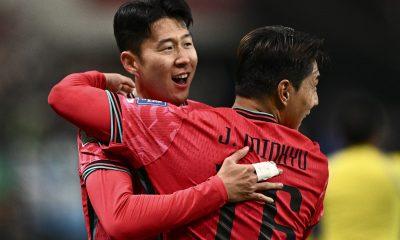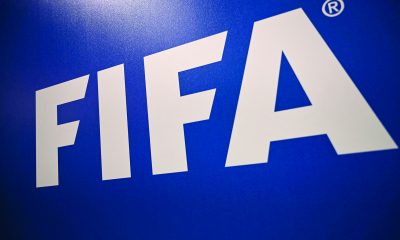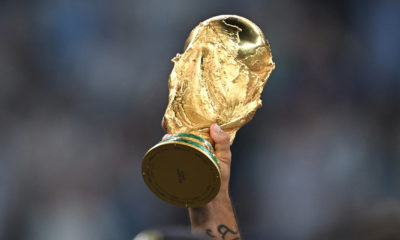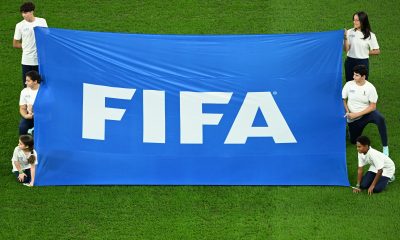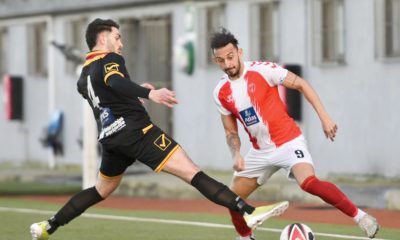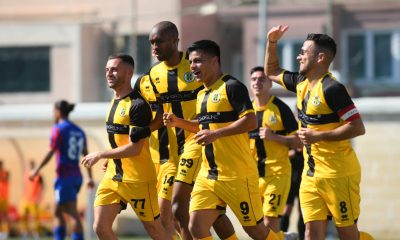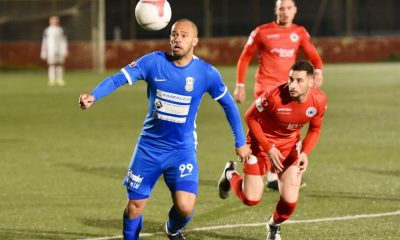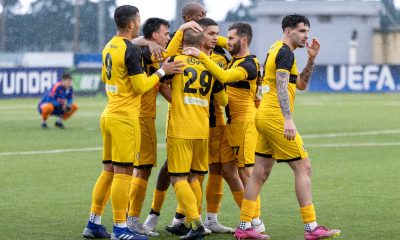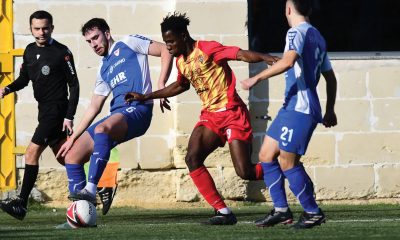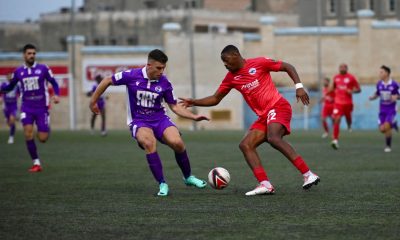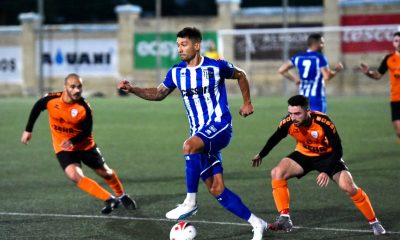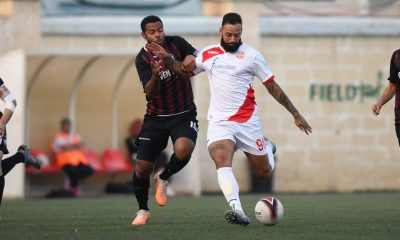
The Malta FA submitted a medical protocol last week for approval to the health authorities in a bid to restart national competitions next month in a safe environment. Valhmor Camilleri spoke to Dr Kirill Micallef Stafrace, the Head of Medical Division, who gave an insight on the precautions to be taken when domestic football returns…
The Malta Football Association presented the new medical protocol during last week’s Executive Committee ahead of the start of the Premier League and the Challenge League which kick off on September 18.
Dr Kirill Micallef Stafrace said that the new medical protocol is based on the previous document, named Return to Play, which was published in May and was made in consultation with the Public Health authorities as well as Sport Malta and the Parliamentary Secretary for Sport.
“We have been working on the medical protocol for the last four months,” the Malta FA Medical Director said.
“It is based on the same concepts that were included in the Return to Play medical protocol published in May as the idea before the season was scrapped was that football competitions would resume.
“We emphasized on how we can put implement from an aspect of quarantine if there is a positive case in a team. From the research we did, we found that if there is a positive test not the whole squad should go into quarantine. The infected player, obviously, goes into a two-week quarantine and he only returns to training once he returns a negative swab test and he undergoes a medical test.
“The reason why we are asking the player to have a medical test is because sometimes the COVID-19 virus effects the body and we don’t realise the damage it had caused so it’s important to investigate this.”
Dr Micallef Stafrace said that the protocol also works on the concept of close contact with those people who live with the positive-tested player or accompany him to the training sessions must do a one-week quarantine before they are re-tested.
In the meantime, he added, the player can continue to train at home so that there are no effects on his fitness when he returns to full training.
“That is why prevention is key,” Dr Micallef Stafrace said.
“The use of masks in training, ban on showers after training and holding crowded meetings are recommended to avoid COVID-19 complications.
“That is why we have recommended the use of bigger changing rooms in stadiums and players on the bench will be wearing a mask as well as continuous use of hand sanitisers to try and limit the risk of infection.”
This week, the national team will kick off its commitments in the UEFA Nations League when they travel to the Faroe Islands and Dr Micallef Stafrace said that the Devis Mangia’s contingent will be facing a strict UEFA protocol.
“Preparations for the national team started in July when we held a training camp and before it started, all players were tested and were allowed to take part if they resulted negative,” Dr Micallef Stafrace said.
“Before the players entered the ‘hotel bubble’ for the camp they also underwent medial tests to see the cardio cardiac effects on their heart and like that we could discover any problems we didn’t know about before. That is why the concept of screening is so important.
“For their upcoming trip to the Faroe Islands the team will have to follow the UEFA protocol of being swabbed before their departure and on arrival and if they test negative, they go straight to the hotel and eat in their rooms.
“They will take another test before the match and once the game finishes they go straight to the airport and back to Malta.”
During the pandemic, a lot has been talked about the effects of COVID-19 but little information was given on how it affected players and coaches during the stoppage caused by the virus.
The use of masks in training, ban on showers after training and holding crowded meetings are recommended to avoid COVID-19 complications
“I think that not enough has been said on the effects the COVID-19 stoppage has had on players and athletes,” Dr Micallef Stafrace said.
“If a professional athlete is forced to stop from his usual training routine for more than a month he would be facing other problems, particularly psychological. It’s tough for him that from a routine which usually sees him training three hours daily, all of a sudden, he is forced to do nothing.
“Then there is the question of injuries once a football player returns to training. During the national team training camp, we saw a sharp increase in injuries.
“So it’s very important to find the right balance between being cautious not to contract COVID-19 but at the same time you cannot just stop from physical activity as you might face the prospect of severe injuries.”
Lethal effect
Dr Micallef Stafrace said that COVID-19 could have a very lethal effect on the sports industry in general and emphasized that it was important that authorities took a more lenient approach or severely jeopardise the future of sporting organisations.
“Like every industry, sport has been badly affected by COVID-19,” Dr Stafrace said.
“As I said, COVID-19 affected badly athletes both physically and psychologically. Many athletes who were planning to compete in the Olympics saw the Games postponed for next year.
“Football players have been doing pre-season training on a much slower mode than before while some of them, whose contract expired, still don’t know what their future will hold.
“I think here in Malta we need a change in mentality so that the sports industry is not badly affected. We should give more support to sports organisations.
“In Australia, there was a hike in cases on the Gold Coast but still, sport has been exempted from the restrictions provided they followed all medical protocols.
“I think the same has to be done in Malta. Sport is a very particular industry where you cannot tell an athlete or a player don’t go to training as you risk to endanger the movement with very little hope of recovery.
“If football players are forced to stop from their physical activity they risk to see the affects of that break in one or two years and surely Maltese sportsmen can’t afford that.”

World Cup News
-
FIFA World Cup
/ 1 month agoSon scores but Thailand hold South Korea in World Cup qualifier
Son Heung-min scored but South Korea were held 1-1 at home by Thailand in...
By AFP -
FIFA World Cup
/ 1 month agoJapan-N. Korea World Cup game to stay in Pyongyang, JFA says
Japan’s World Cup qualifier against North Korea will be played in Pyongyang as planned...
By AFP -
FIFA World Cup
/ 2 months agoGerman ex-FA bosses on trial over World Cup tax evasion
Three German ex-top football officials went on trial on Monday in a 13.7-million-euro ($14.8...
By AFP -
FIFA World Cup
/ 2 months agoSaudi Arabia formally launches bid for 2034 World Cup
Saudi Arabia formally launched its bid to host the 2034 World Cup on Friday,...
By AFP

BOV Premier League
New Premier League format explained

English Premier League
Chelsea’s bad days are ‘so bad’: Pochettino

English Premier League
Haaland ruled out of Man. City’s crucial trip to Brighton

Winter Olympics
Watch: Geisenberger wins sixth Olympic medal to tie luge record

